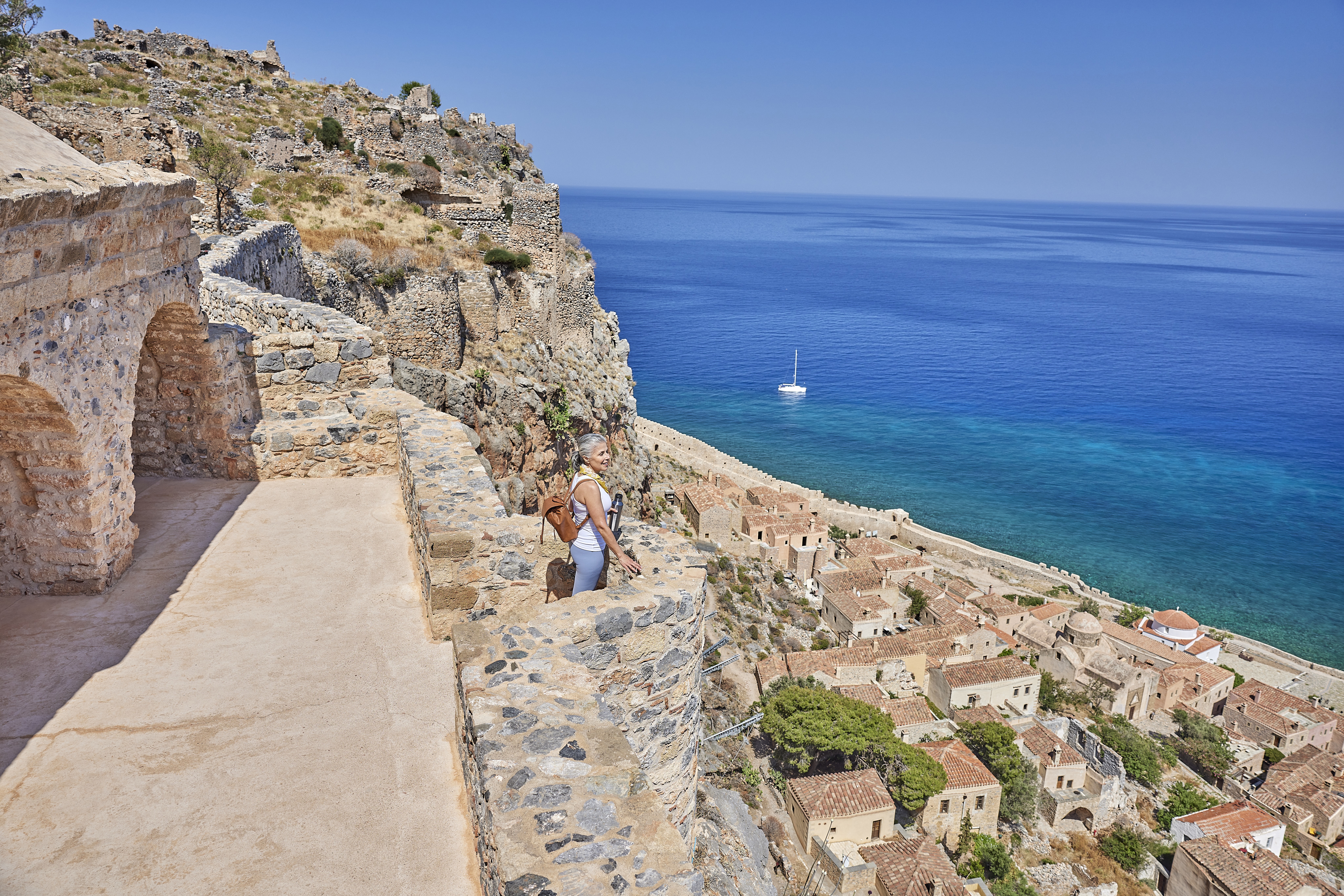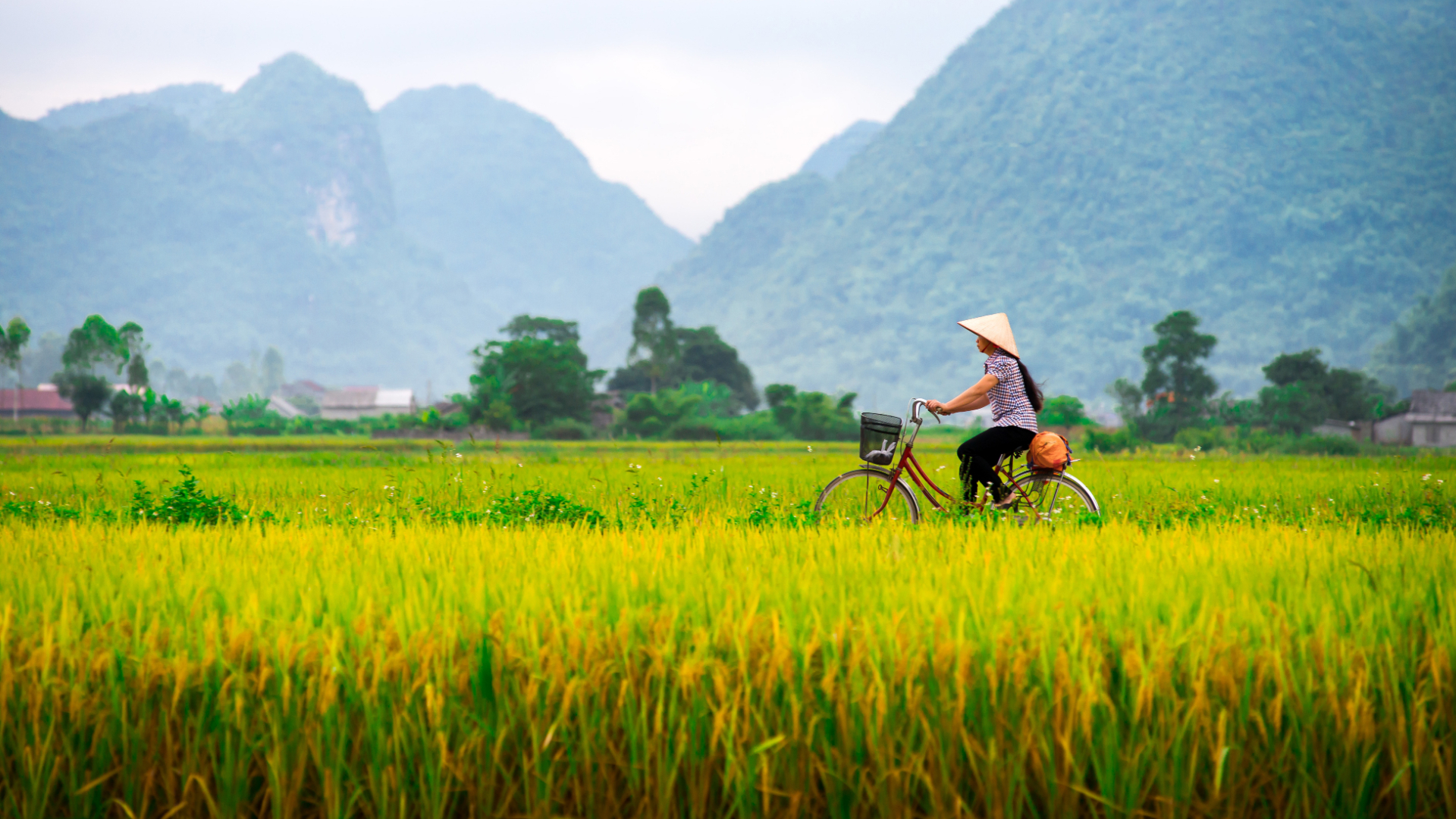- Environment & Community
- Wellness & Wellbeing
- Arts & Culture

Find balance and test your senses in Vietnam with a food-filled itinerary of colourful and flavourful dishes, picked out by locals.
From the capital of Hanoi, with its stunning architecture, to the heady delights of Ho Chi Minh City, take in the all-encompassing metropolis, people, and food of such a diverse country. As well as staying in the best luxury retreats, such as Four Seasons Resort The Nam Hai, explore the most enchanting culinary scene.
Due to Chinese control of Vietnam from 111BC to 938AD, local dishes showcase a strong focus on traditional Chinese medicine: philosophically balanced, it takes the best of the region and perfects it, creating a distinct and unforgettable flavour profile. Finding a balance of bitter, spicy, sour, sweet and salty flavours, Vietnamese food corresponds to the five elements of fire, metal, wood, earth and water through each fragrance, colour and taste. Take the use of the fermented fish sauce nuoc mam, the juice of the kalamansi citrus fruit, or sweet/spicy tamarind and chilli peppers: it’s a gastronomic treat for the five senses.
It’s also seen as one of the healthiest cuisines in the world, due to its fresh ingredients, negligible use of dairy and oil, and focus on vegetables, spices and herbs. The principle of Yin and Yang is central to the kitchen: after all, a balanced meal means a balanced body. Push your exploration beyond its normal limits by delving into the vibrant and fresh flavours of lemongrass, ginger and mint, while indulging in dishes unique to each part of this fertile and lush country.
On the bank of the Red River is Vietnam’s capital, Hanoi. Wide, tree-lined boulevards and luxury villas mix with ancient streets, making this a lively and vibrant city. There’s certainly plenty to enjoy in Hanoi with its traditional entertainment, fascinating history and, of course, its mouth-watering street food, whose vendors provide Hanoi’s almost 8 million stomachs with perfect treats day and night. Many of Vietnam’s most famous dishes are said to have their beginnings in Hanoi, including Phở, the country’s world-famous rice noodle soup.
There’s a place for tradition and a place for innovation, and it’s here that food bloggers like Van Cong Tu are an invaluable source of local knowledge. A street food tour with him will reveal the area’s best culinary spots. Try stir-fried noodles with beef at his favourite spot, or grab bún chả, a charcoal-roasted pork in a sweet/salty soup with rice noodles and lettuce – it’s a local favourite.
As balance is all-important, time spent in the big city should be paired with something a little more serene. Halong Bay, a UNESCO World Heritage Site, is famous for its thousands of limestone islets dotting the sea and tropical, evergreen setting. The best way to see this unique part of the world is by ‘junk’, a type of ancient Chinese sailing boat. Hop aboard Violet, a traditional deluxe vessel, for an overnight cruise to discover the otherworldly Tien Ong cave, a natural and ancient grotto with stalactites shaped like peacocks and crocodiles and stone artefacts from the Hoa Binh, a mystical community that lived as long ago as 10,000 BC.
Experience the beauty and serenity of Cua Van, Halong’s largest floating fishing village, with its fishermen always ready to educate tourists about their traditional culture and customs. Watching nets be made and the fishing itself is an experience not to be missed, and reinforces the importance of learning how best to live life sustainably from those who call the area home. For a few more life lessons, a cooking class on the Violet with its chef is a good way to perfect your seafood dishes, as Halong Bay is home to a healthy number of cuttlefish, oysters, prawns and lobsters. Wash your hard-earned food down with a few drams of sticky rice wine or try a Moscow Mule, made – of course – with Hanoi Vodka.
With a population of 8.6 million, it’s impossible to remain disconnected from the sights and smells of the bustling Ho Chi Minh City. This is Vietnam at its most high-energy, a heady, disorienting destination, where local vitality and pace of life carry you away to the very essence of what it means to be Vietnamese.
Exploring the back streets and eateries of what was once known as Saigon is a thrilling enough experience on foot, but here, Carrier goes the extra mile. Hop on the back of a Vespa with an expert guide leading the way through street food stalls, to restaurants run by Michelin-starred chefs, to the oncein- a-lifetime experience of Ben Thanh Market. Expect to be welcomed by stall owners selling everything you love – and things you’ve never even considered. Wind your way through the labyrinthine aisles to the wet market at the back of the complex to find a dizzying array of local produce and ingredients laid out for Saigon’s hungry throngs. As dusk falls, the surrounding restaurants open their doors, drifting the scents of their wok-fried noodles and barbecued fish until the early hours – much needed after an afternoon of giddy sightseeing.
Ho Chi Minh City isn’t necessarily all action – an escape from the city is possible by spending time with local farmers and their families among the rice paddies and fruit farms of the fertile Mekong Delta. This tranquil setting is the perfect retreat – spend time among its floating markets and Khmer pagodas, dotted along the many canals and waterways that crisscross the landscape of the ‘Rice Bowl of Vietnam’. The hectic and the calm; the loud and the quiet; you’ll leave Vietnam with your body and mind in perfect harmony.
How long do I need?
When should I go?
Where can I stay?
What’s Carrier’s top tip?




